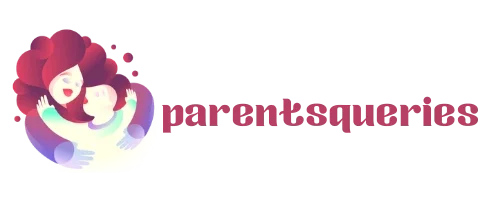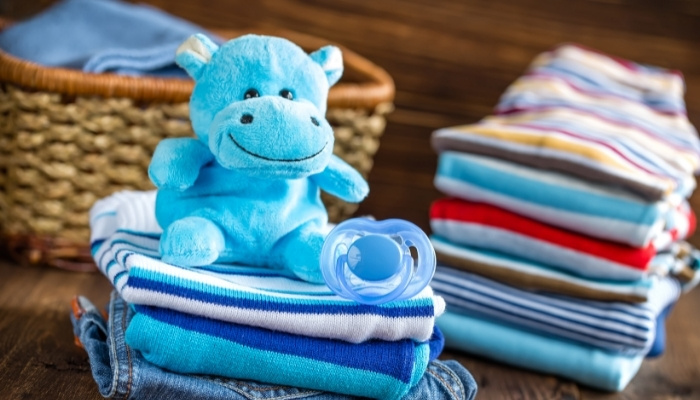When Do Twins Start Talking?
As a parent of twins, one of your most pressing questions might be: When do twins start talking? It is an important milestone in any child’s development but can be especially concerning to parents and guardians of twins. While every child is unique and develops differently, there are some general milestones that can give you a better idea of when to expect certain speech developments from your children.
Language Developments in Twins
The age at which twins start talking can be a source of curiosity for many parents. Twin language development has been the subject of much research, and the results are quite interesting. When do twins start talking? The answer to this question depends on many factors such as genetic makeup, environmental variables, and maturity level.
Studies have shown that while twins may begin babbling or cooing at around 4-6 months, they typically don’t produce their first words until 11-14 months old in comparison to singleton babies who generally first use words between 9-12 months old.
However, it is not unusual for identical twins to develop their own language before learning their primary language due to the amount of time spent together in comparison with singletons who interact more frequently with adults who speak a different language than them.
How Do Babies Learn to Talk?
Babies are capable of learning to talk from a young age, but the exact timeline varies depending on many factors. It is believed that most babies start saying their first words around 12 months old, but when do twins start talking?
Twins typically learn to talk at the same rate as all other babies, with some minor variations depending on a variety of factors including home environment and individual personalities. Twins tend to be more interactive than single babies due to the presence of another baby in the same environment. Therefore, it is not uncommon for twins to begin speaking earlier than single infants – sometimes as early as 8 months old or even younger.
It’s important for parents of twins to create an environment that encourages language development by engaging with their babies frequently and consistently throughout each day.
Average Age Babies Start Talking
When do twins start talking? It is a common question among parents and one that has been studied extensively. According to research, the average age when babies start talking is around 12 months, but the range is quite broad with some babies starting as early as 5-6 months and other children taking up to 18 months or more before they say their first words.
Twins tend to reach this developmental milestone at roughly the same time, if not a little earlier than singletons. Twins have an innate communication system with each other which may help them learn the language quicker; plus they are exposed to language from being around another person who speaks all day long!
This means that most twins will begin making simple sounds, such as babbling and cooing, sometime between 8-10 months of age, followed by their first real words at 12 months or so. Read Are Identical Twins Height Same?
Gender and Language
Studies have shown that the language abilities of twins can differ greatly, depending on their environment and upbringing. Generally speaking, most twins begin understanding and using language by 18 months of age. Some even show signs of early communication as young as 6-7 months old!
The two main ways in which infants learn to communicate are through imitation and babbling; though some may be more advanced than others, these are essential skills for all children to develop language skills.
Gender also has an important role in how quickly a baby develops language skills. Girls tend to develop language faster than boys, likely due to society’s expectation that girls will often engage in conversations earlier than boys do.
Speech Delay in Twins
Speech delay in twins is a common concern among parents of multiple-birth children. Many twins take longer to develop language skills than singleton babies, leading parents to wonder when their children will start talking. To better understand the issue, it helps to look at the different types of speech delays that can affect both identical and fraternal twins.
Twins born prematurely may experience delays in speech development due to their immature lungs and neurologic systems. Preterm infants often need extra help with breathing assistance, which can cause them to be less verbal than full-term babies due to fatigue or difficulty coordinating muscle movements needed for talking.
The younger the twin, the more likely they are to have a language delay due to physical immaturity or lack of opportunity for language exposure.
Signs Baby Will Talk Soon

Signs of language development are babbling and making sounds like “mama” or “papa.” As babies become more comfortable with vocalizing sounds, they begin to recognize simple words and phrases.
Look also for baby twins responding to verbal commands or pointing at objects when asked what they are. With increased exposure to language, baby twins can start forming basic words that match the objects around them in a matter of weeks or months.
You can encourage your twin’s language development by reading stories together and playing games like peek-a-boo.
When To Be Concerned
Generally speaking, twins should begin making noises and babbling by 9 months old. By 12 months old, twins should have a good grasp of single words and be able to combine two-word sentences like “I go” or “More juice.” If your twins haven’t reached these milestones by 15 months old then this could be a sign that they may need some additional assistance with their language development.
Home Remedies For the Late-Talking Child

Home remedies for the late-talking child can help parents understand and address their child’s slow progress in language development. When do twins start talking? While there is no definitive answer to this question, as each twin develops differently, there are certain home remedies that parents can use to help stimulate language skills in their children.
The first step in helping a late-talking child is to provide an enriched environment with plenty of opportunities for them to explore and interact. This can include reading books together, providing toys that foster imaginative play, and having regular conversations with your little one. Additionally, it’s important for parents to be patient and give their children time and space to express themselves without pressure or judgment. Check Di Di Twins Switching Sides in the Womb: What To Know
Related Question
Do Twins Walk Later?
Generally, twins do not walk later than single babies. Most twins learn to walk at the same age as single babies, usually between 9 and 18 months of age. However, some twins may take a little longer to reach this milestone because they are often more content being carried around or playing together on the floor than trying to stand and walk independently. Additionally, since twins often have to share their parents’ attention with each other, they may be less motivated to try out walking on their own.
In cases where one twin is significantly more advanced in physical development than the other, it’s possible that one will start walking before the other. It’s important for parents of twins to be aware of any differences in development and provide extra support and attention if needed. With patience and encouragement from their parents, most twins will eventually learn how to walk just like any other baby.
When Do Twins Get Easier?
The answer to this question can vary greatly depending on the age of the twins and their personalities. Generally speaking, however, most parents find that once the twins reach the age of two or three, they become easier to manage.
At this stage, they are able to communicate better with each other and with their parents, which helps to reduce some of the stress associated with caring for two children at once. Additionally, as toddlers become more independent, parents can begin to give them more freedom and responsibility. This allows them to explore their environment while giving their parents more time for themselves.
Overall, it is important to remember that every family is different and there is no one-size-fits-all answer when it comes to when twins get easier. That being said, most parents report that after a few years of parenting twins, things tend to get much simpler as the children grow older and become more independent.
Conclusion: When Do Twins Start Talking
It is important to remember that when it comes to twins and their development, every child is unique. There are no hard and fast rules as to when your twins will begin talking and each individual case should be monitored closely. If you have any concerns about your children’s language development or social skills, it is best to consult with a professional who can give you advice specific to the situation.






